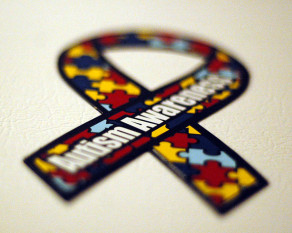The apparent increase in autism prevalence over the past decade has driven this disorder into the focus of our nation. This attention has led to a race for the cure, so to speak, a desperate search for a silver bullet to unlock the secrets of autism and cure its wide-ranging symptoms.
But this race is futile. Autism is extremely complex with both genetic and environmental factors, and no single treatment is likely to benefit everyone with autism or improve more than a few of its many symptoms. Searching for a silver bullet is not only pointless but also dangerous, as some of the proposed cure-alls may actually hurt more than they help.
The Food and Drug Administration recently released a consumer update warning families against false claims of cures for autism. Some of the treatments under question include removing important metals from the body in a process known as chelation and an ingestible “miracle mineral solution,” which turned out to be bleach. In the report, the FDA warns that these treatments are not only largely ineffective but could also lead to “serious and life-threatening outcomes.”
When the treatments above have proven fruitless, doctor-salesmen in Panama and other foreign countries have offered up therapies usually reserved for cancer treatment, such as stem cell and bone marrow transplants. These highly invasive, unregulated treatments are only informed by the preliminary results of exploratory animal studies published over the last few years. Although a clinical trial for stem cell therapy in autism is underway, a reminder is needed: autism is not cancer, and it will not be treated effectively if viewed as such.
Even an FDA-approved medication for aggression and irritability in autism, risperidone, has come into question for serious side effects. According to recent studies, this antipsychotic drug may cause metabolic dysfunction and significant weight gain, while only providing behavioral benefits for some individuals. A recent study exploring the combined results of many other studies led to the conclusion that risperidone and a similar drug, aripiprazole, have “substantial adverse effects and that each compound has a specific secondary effect profile that should be taken into account in treatment decision-making.”
The available treatments for autism, whether quack or FDA-approved, have a skewed cost-benefit ratio, in which the risk of harmful side effects outweighs the chance of true benefits. Scientists need to take treatment research back to the core symptoms of autism, especially social communication deficits. The utility of combo-therapies, in which medication and behavioral therapy are given together, should be further explored.
Treatments should stem not from a trial and error approach, but from a bottom-up approach, in which core symptoms and their potential underlying mechanisms inspire treatment ideas. Ultimately scientists and physicians need to focus solely on research-driven, patient-centered treatments. Any supposed silver bullet is really just a shot in the dark.
[This post was originally published at my previous blog, Neurolore.]
But this race is futile. Autism is extremely complex with both genetic and environmental factors, and no single treatment is likely to benefit everyone with autism or improve more than a few of its many symptoms. Searching for a silver bullet is not only pointless but also dangerous, as some of the proposed cure-alls may actually hurt more than they help.
The Food and Drug Administration recently released a consumer update warning families against false claims of cures for autism. Some of the treatments under question include removing important metals from the body in a process known as chelation and an ingestible “miracle mineral solution,” which turned out to be bleach. In the report, the FDA warns that these treatments are not only largely ineffective but could also lead to “serious and life-threatening outcomes.”
When the treatments above have proven fruitless, doctor-salesmen in Panama and other foreign countries have offered up therapies usually reserved for cancer treatment, such as stem cell and bone marrow transplants. These highly invasive, unregulated treatments are only informed by the preliminary results of exploratory animal studies published over the last few years. Although a clinical trial for stem cell therapy in autism is underway, a reminder is needed: autism is not cancer, and it will not be treated effectively if viewed as such.
Even an FDA-approved medication for aggression and irritability in autism, risperidone, has come into question for serious side effects. According to recent studies, this antipsychotic drug may cause metabolic dysfunction and significant weight gain, while only providing behavioral benefits for some individuals. A recent study exploring the combined results of many other studies led to the conclusion that risperidone and a similar drug, aripiprazole, have “substantial adverse effects and that each compound has a specific secondary effect profile that should be taken into account in treatment decision-making.”
The available treatments for autism, whether quack or FDA-approved, have a skewed cost-benefit ratio, in which the risk of harmful side effects outweighs the chance of true benefits. Scientists need to take treatment research back to the core symptoms of autism, especially social communication deficits. The utility of combo-therapies, in which medication and behavioral therapy are given together, should be further explored.
Treatments should stem not from a trial and error approach, but from a bottom-up approach, in which core symptoms and their potential underlying mechanisms inspire treatment ideas. Ultimately scientists and physicians need to focus solely on research-driven, patient-centered treatments. Any supposed silver bullet is really just a shot in the dark.
[This post was originally published at my previous blog, Neurolore.]

